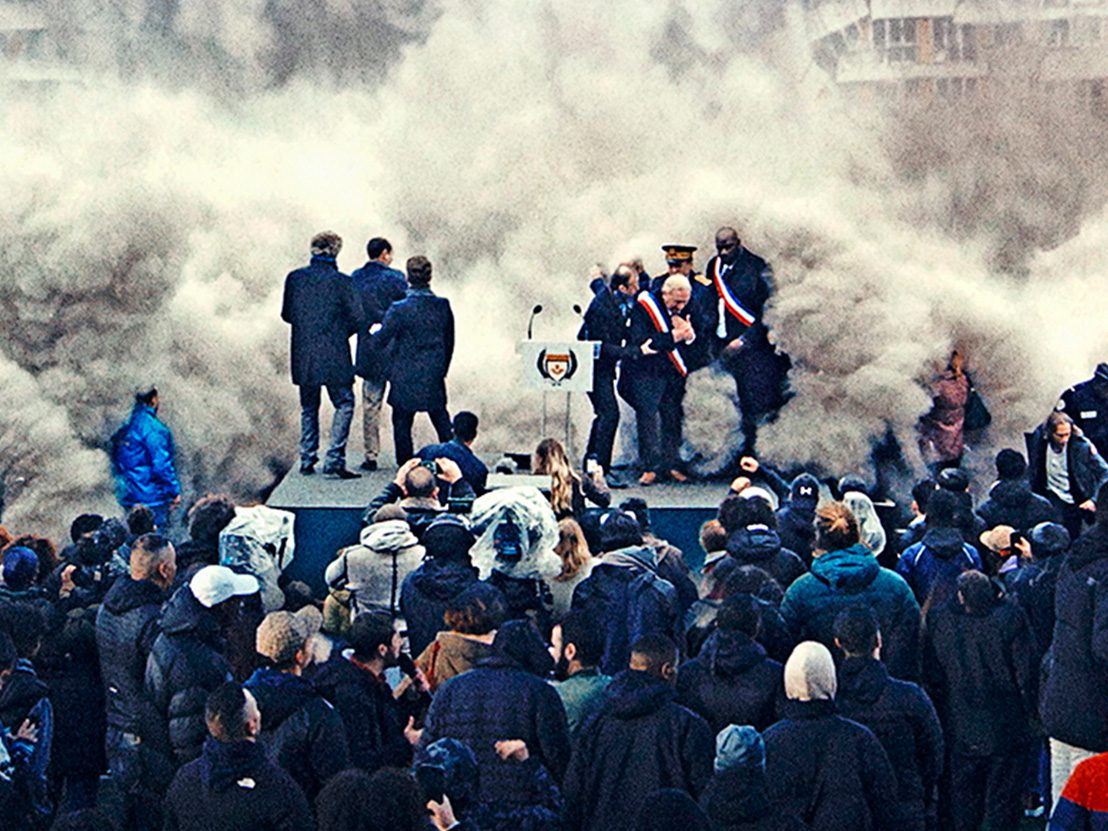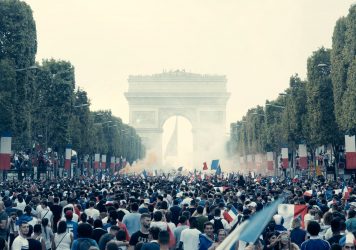
Ladj Ly’s follow-up to his Cesar award-winning Les Misérables is a hyperbolic state-of-the-nation address that lacks the logic and fire of that first feature.
With his first fiction feature, 2019’s police-brutality drama Les Misérables, Ladj Ly won the Jury Prize at Cannes and the César for Best Film, and more or less instantaneously became French cinema culture’s go-to explainer of How the Other Half Lives. The case for his films is that he observes daily life, transcribes grievances and faithfully reports on the moments of friction at the edge of the French establishment, where its gatekeepers clash with those clamouring – in unfamiliar accents – to be let in.
If the dramaturgy of Les Misérables was didactic, and its eruptive climax hyperbolic, it nevertheless had a cacophonous urgency, like an overheard confrontation at the other end of the subway platform. The compressed, ruthlessly logical plotting, which is set in motion by a single police patrol in one of the banlieues of suburban Paris, exerts a centrifugal pull on characters who, as the man said, all have their reasons, unfurling a violent, panoramic social portrait.
Les Indésirables (named Bâtiment 5, “Building 5,” in French, but given a sequelising title in English), establishes Ly’s project as investigating the conditions of France’s urban margins through a sequential focus on different institutions. Les Misérables, like Season One of The Wire, was about the police; Les Indésirables is about public housing itself.
The film largely concerns a single tower block, introduced in an opening sequence in which the African-diaspora community endures the unwieldy, undignified thumping procession of a matriarch’s casket down several steep flights of the building’s underlit concrete stairwell – the elevator hasn’t worked in years, one of the mourners moans. Ly and his cowriter Giordano Gederlini chart the narrative terrain through the inexperienced new Acting Mayor Pierre (Alexis Maneti), a paediatrician who sets out to improve the area’s quality of life through demolition and renovation of the neighbourhood.
There’s also Haby (Anty Diaw) a social worker who helps her neighbours navigate the local bureaucracy and advocates for fair compensation for relocated tenants and sufficient space in the new builds. Pierre and Haby’s daily work brings them into contact with a variety of simmering conflicts: the resettlement of Syrian refugees (and the resentment of underserved existing communities who detect preferential treatment); permitting issues around an illegal private-kitchen restaurant; petty crime and police overreaction.
This is a promising setup, but the execution is remarkably diffuse and sensationalistic. Ly and Gederlini introduce plot elements that don’t pay off later. For one, Pierre’s predecessor was apparently under investigation for corruption and it might put a spin on his pathologising program of slum clearance if, for instance, we had a sense that the infrastructure project was compromised by cronyism and kickbacks among fixers in the community, but maybe all that was in an earlier draft. There are also wild, unfocused swings in the plotting, as Pierre randomly institutes an extreme curfew, inspiring protests and police reprisals, in a diminishing-returns echo of Les Mis.
Rather than a forensic film, channeling its characters through a process-oriented narrative that naturally reveals different facets of their psyches, or uncovers different aspects of their motivations and locates them within a wider context, Les Indésirables is merely a shouty film, in which characters explain their beliefs to each other so we’ll remember to apply them during the next shocking act of violence.
Ly directs with edgy fluency, particularly in the film’s showpiece sequence, the forced evacuation of a possibly unsafe public-housing tower, in which even the most manipulative heartstring yanks – like a child running back in for a plushy toy – are interwoven into a choreographed confusion of exile, with residents packing in panic, triaging their worldly belongings as the riot squad rush them out of their homes. But a realist approach to agitprop — natural light, handheld camera, textures extending outside the frame — only works if the writing is as accurate as the emotion.
Even accounting for the high-handedness of French secular liberal authority (cf the ever-expanding burka ban), it’s just spotty writing to make Pierre be so bad at retail politics — a councilmember for three years at the start of the film, he seems to have never interacted with an emotional constituent before — and real-life disaster capitalists do not state their intentions as bluntly and unsympathetically as Pierre explains his rationale for the evacuation, not even in private.
By the movie’s end, many of Ly’s characters find themselves with nowhere to go and nothing to do except burn it all down. The same can be said of the filmmaker, who attempts to reprise Les Misérables’s bourgeois-baiting final act of retributive violence, this time interspersed with a rampaging character’s running commentary on the meaning of his own actions, lest Ly’s arthouse crowd find his depiction of underclass rage too unsettling and unresolved.
Published 10 Sep 2023

The French director of Les Misérables has been subjected to implicit racism.

The hardships of daily life in one of Paris’ toughest neighbourhoods are captured in Ladj Ly’s La Haine-esque debut.